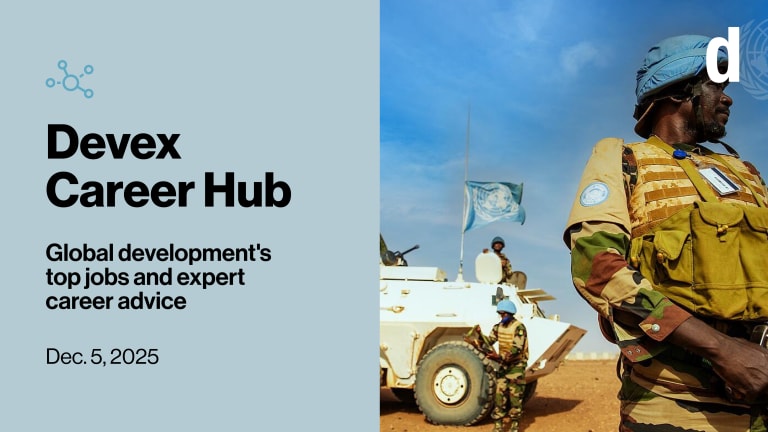When you apply for a job with the United Nations Population Fund, as with many U.N. agencies, you are up against a large pool of candidates. To increase your chances of job application success, it is helpful to understand which skills and experiences specific agencies are looking for, and what you can do now to prepare.
Victoria Fernandes, former head of strategic sourcing with UNFPA and currently head of change management with the United Nations Development Programme, shared some tips and tricks on applying to the agency — and many of these tips are applicable to other U.N. field-based organizations.
Fernandes also highlighted where you might be able to identify gaps in your own profile, depending on whether you are a recent graduate, transitioning from another sector, or a development professional just trying to break into the U.N. system. She recommended looking at actions you can take now — such as gaining a certification, brushing up on a second language, or getting overseas experience — to stand out to a U.N. recruiter.
This article is exclusively for Career Account members.
Unlock this article now with a 15-day free trial of a Devex Career Account. With a Career Account subscription you will get:
- Full access to our jobs board, including over 1,000 exclusive jobs
- Your Devex profile highlighted in recruiter search results
- Connections to recruiters and industry experts through online and live Devex events








